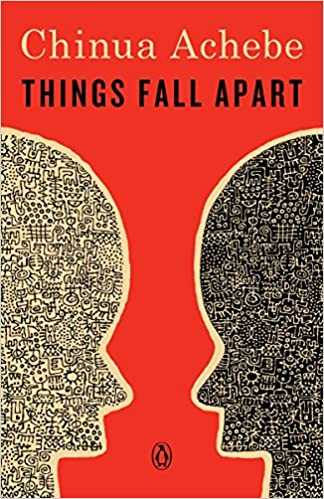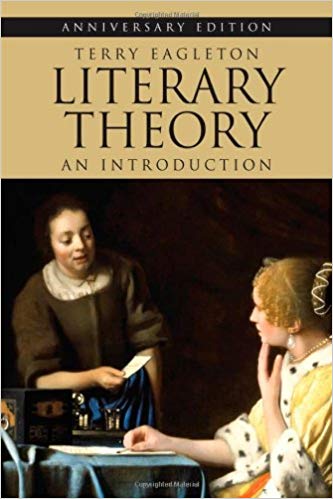Honors Colloquium
Postcolonial Literature
TR 12:30-1:45
Introduction
This course will introduce you to the postcolonial aspects of global literature. The postcolonial cultural production can be roughly divided into three overlapping phases: the works produced during the contact phase, the native responses to colonialism, and the postcolonial cultural production both from the global periphery and the diasporic authors. Postcolonialism is a dynamic, expansive, and contested field of literary study involving a high degree of multidisciplinarity and theoretical innovation. This course will also introduce you to the early and current debates of the field and possibilities of the field in the future. We will pay special attention to the current state of high capital and neoliberal globalization and the artistic and critical responses being offered in resistance.
We will read these texts of the global periphery not simply as crystallized versions of the cultures that they attempt to represent, but also use them as points of departure into a study of the larger power structures within which these texts are produced. In doing so we will also question our own place and privileged location within the academy and imagine the possibilities of making our work commensurate with the acts of semiotic and material resistance being offered to the reigning power structures by the cultures of the global south.
This course will introduce you to the current global negotiation of power, the articulation of native resistance against the imperatives of globalization, and the native attempts at achieving social justice. In doing so we will also touch upon the role of the nation-state within the current climate of neoliberal globalization and the global war on terror, the politics of the diasporic cultural production, and the possibilities of global popular alliances.
Required Texts:
Loomba, Ania. Colonialism/Postcolonialism. Second Edition. New York: Routledge, 2005.
Said, Edward. Orientalism. New York: Vintage, 1979.
Ngugi, Wa Thiong’o. Devil on the Cross. Oxford: Heinemann, 1982.
Cooke, Miriam. Hayati: My Life. New York: Syracuse UP, 2000.
Lovelace, Earl. The Dragon Can’t Dance. Harlow: Longman, 1979.
Occasional handouts and Library Reserves. [HO/RES]
Course Policies and Requirements
Students are expected to come prepared for class: This involves reading the assigned texts, listening carefully to their peers, and contributing their views in a collegiate and stimulating way. Attendance is mandatory. YOU MUST FINISH ALL MAJOR ASSIGNMENTS TO PASS THE COURSE.
Distribution of Points:
Response Journals 100 Points
Mid-Term Exam 200 Points
Presentations 100 Points
Term Paper 200 Points
Final Exam 300 Points
Participation 100 Points
Total 1000 Points
Response Journals (100 Points)
Every week you will turn in a journal responding to the readings assigned for the week (10 JOURNALS IN TOTAL). The journal should be minimum two pages, double-spaced, font 12 Times. Following are some, but not all, questions you may consider:
What does the text say about gender, race, ethnicity, class, nation, or power and what are your views about it?
Did you agree or disagree with the text’s politics? why?
What is the text critiquing? • How can we relate this text to contemporary realities?
Does this text raise the question of justice? If so, how and for whom? • Does the text provide a politics for a better future?
How does the form compare to the metropolitan techniques of creative production? (For creative writing majors)
Mid-Term Exam (200 Points):
The Mid-term will be given in the eighth week. The exam will include three essay questions. I will give you a comprehensive study guide a week before the exam.
Group Presentation (100 Points)
In the first week, your class will be divided into small groups who will then choose their presentation topics. I will provide detailed instructions later.
Term Paper (200 Points)
The final term paper will be due on the last day of class. The paper should be 10-15 pages, written in MLA style, with a clearly defined thesis and a coherent argument. I expect you to use at least one of the major critical approaches that you must have learned in your Critical Theory course. I would encourage you to choose your topic early and to conduct extensive research. I will be available to assist during all the stages of your research and composition process. I will give you a separate handout about the detailed requirements of this assignment. No late papers please.
Final Exam (300 Points)
The final exam will be a two part, essay exam. Part 1 will comprise a take home exam while Part 2 will be in-class. A detailed study guide will be provided a week prior to the exam.
Class Participation (100 Points)
As this is a discussion format class, your thoughtful participation is essential to the success of the class. I encourage collegiate, open, and thought-provoking class discussions. Remember, we are all here to learn, so let us share our ideas and knowledge to make this class into a dynamic learning experience. I encourage you to speak-up in the class, not just about the texts but also if you have any suggestions about how to improve our learning during the course.
Attendance
You are expected to attend the class regularly. You will be in the danger of failing the course if you exceed FOUR absences.
Cheating and Plagiarism
(Excerpt from the University’s Administrative policy and procedures regarding student cheating and plagiarism. Excerpted from University Policy Register #3342-3-07)
Cheating and plagiarism constitute fraudulent misrepresentation for which no credit can be given and for which appropriate sanctions are warranted and will be applied.
“Cheat” means intentionally to misrepresent the source, nature, or other conditions of academic work so as to accrue undeserved credit, or to cooperate with someone else in such misrepresentation. Such misrepresentations may, but need not necessarily, involve the work of others. As defined, cheating includes, but is not limited to:
Obtaining or retaining partial or whole copies of examination, tests or quizzes before these are distributed for student use;
Using notes, textbooks or other information in examinations, tests and quizzes, except as expressly permitted;
Obtaining confidential information about examinations, tests or quizzes other than that released by the instructor;
Securing, giving or exchanging information during examinations;
Presenting data or other material gathered by another person or group as one’s own;
Falsifying experimental data or information;
Having another person take one’s place for any academic performance without the specific knowledge and permission of the instructor;
Cooperating with another to do one or more of the above; and
Using a substantial portion of a piece of work previously submitted for another course or program to meet the requirements of the present course or program without notifying the instructor to whom the work is presented.
Presenting falsified information in order to postpone or avoid examinations, tests, quizzes, or other academic work.
“Plagiarize” means to take and present as one’s own a material portion of the ideas or words of another or to present as one’s own an idea or work derived from an existing source without full and proper credit to the source of the ideas, words, or works. As defined, plagiarize includes, but is not limited to:
(a) The copying of words, sentences and paragraphs directly from the work of another without proper credit;
(b) The copying of illustrations, figures, photographs, drawings, models, or other visual and nonverbal materials, including recordings, of another without proper credit; and
(c) The presentation of work prepared by another in final or draft form as one’s own without citing the source, such as the use of purchased research papers.
Registration Requirement
The official registration deadline for this course is September 7, 2008. University policy requires all students to be officially registered in each class they are attending. Students who are not officially registered for a course by published deadlines should not be attending classes and will not receive credit or a grade for the course. Each student must confirm enrollment by checking his/her class schedule (using Student Tools in FlashFast) prior to the deadline indicated. Registration errors must be corrected prior to the deadline.
ADA
University Policy 3342-3-01.3 requires that students with disabilities be provided reasonable accommodations to ensure their equal access to course content. If you have a documented disability and require accommodations, please contact the instructor at the beginning of the semester to make arrangements for necessary classroom adjustments. Please note, you must first verify your eligibility for these through Student Accessibility Services (contact 330-672-3391 or visit www.kent.edu/sas for more information on registration procedures).
Grading Scale:
A 950-1000
A- 900-949
B+ 860-899
B 830-859
B- 800-829
C+ 760-799
C 739-759
C- 700-729
D+ 660-699
D 630-659
D- 600-629
F Less than 600 Points
Weekly Class Schedule
Note: This is a tentative weekly schedule. The instructor may change it as and when it
becomes necessary. All such changes will be announced in the class.
Week One
Introduction to the course and Postcolonialism
Formation of presentation Groups
Readings:
Colonialism/Postcolonialism. Loomba.
Week Two
Class Discussion Loomba.
Readings:
Colonialism/Postcolonialism. Loomba.
Week Three
Class Discussion: Loomba
Readings:
Orientalism Said,
Film Screening Orientalism
Week Four
Presentation: Said.
Class Discussion: Said.
Readings:
Orientalism, Said
Week Five
Class Discussion Said.
Readings:
Devil on the Cross Ngugi
Week Six
Class Discussion: Ngugi
Readings:
Devil on the Cross Ngugi
Week Seven
Class Discussion Ngugi
Readings:
Hayati Cooke
Film Screening (Time TBA): The Gaza Ghetto
Week Eight
Presentation: Cooke
Class Discussion: Cooke
MIDTERM EXAM
Readings:
Hayati Cooke.
Week Nine
Class Discussion: Cooke.
Readings:
Hayati Cooke.
Week Ten
Class Discussion: Cooke
Readings
The Dragon Can’t Dance, Lovelace
Week Eleven
Presentation: Lovelace
Class Discussion: Lovelace
Readings:
The Dragon Can’t Dance, Lovelace
Week Twelve
Class Discussion: Lovelace
Reading:
The Dragon Can’t Dance, Lovelace
Week Thirteen
Concluding Discussion and Intro to Part 2 of the course.
Final Paper Workshop
Week Fourteen
Final Exam
Final papers due on last day of classes.


